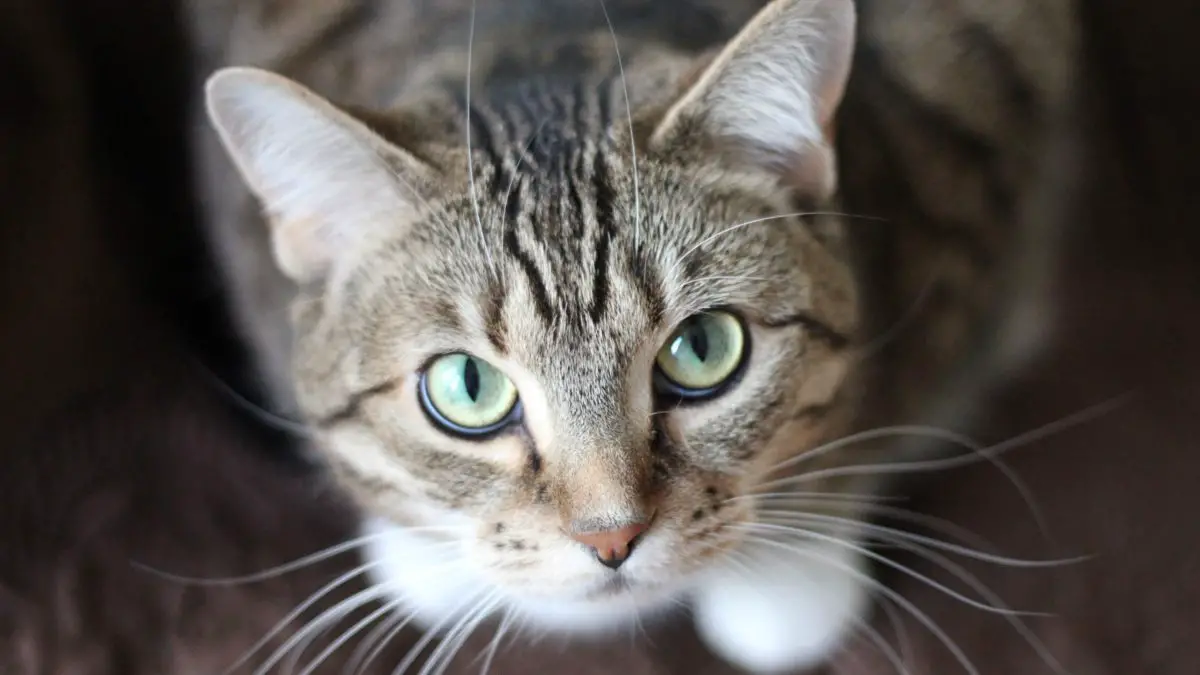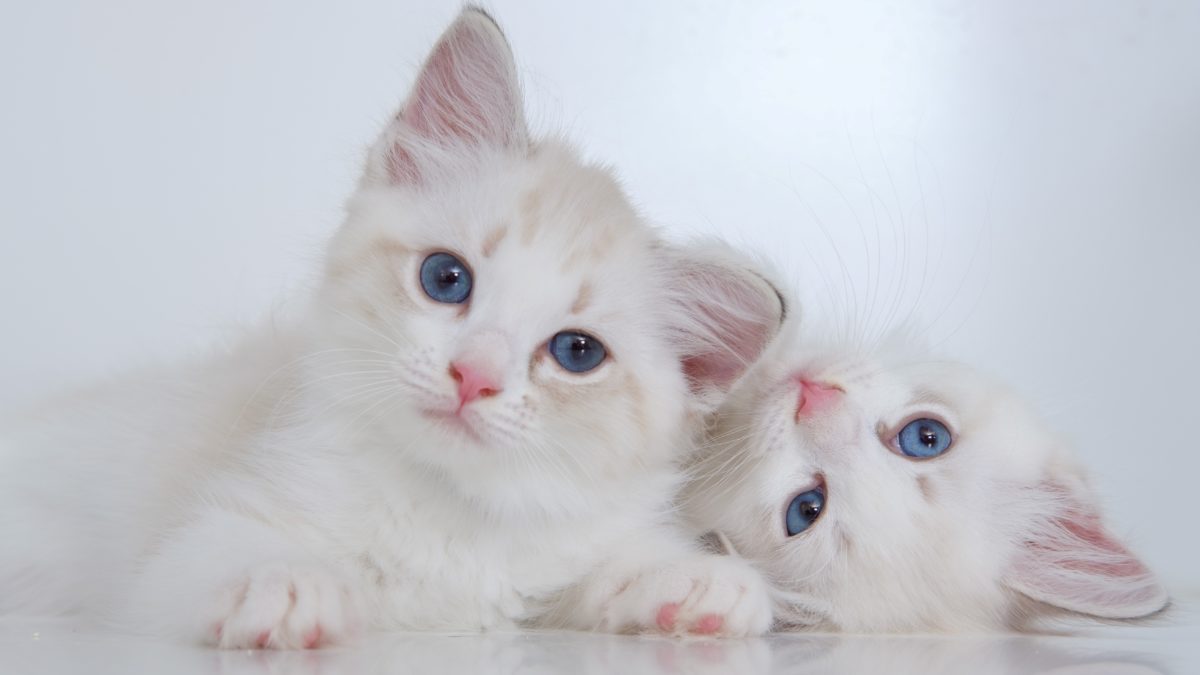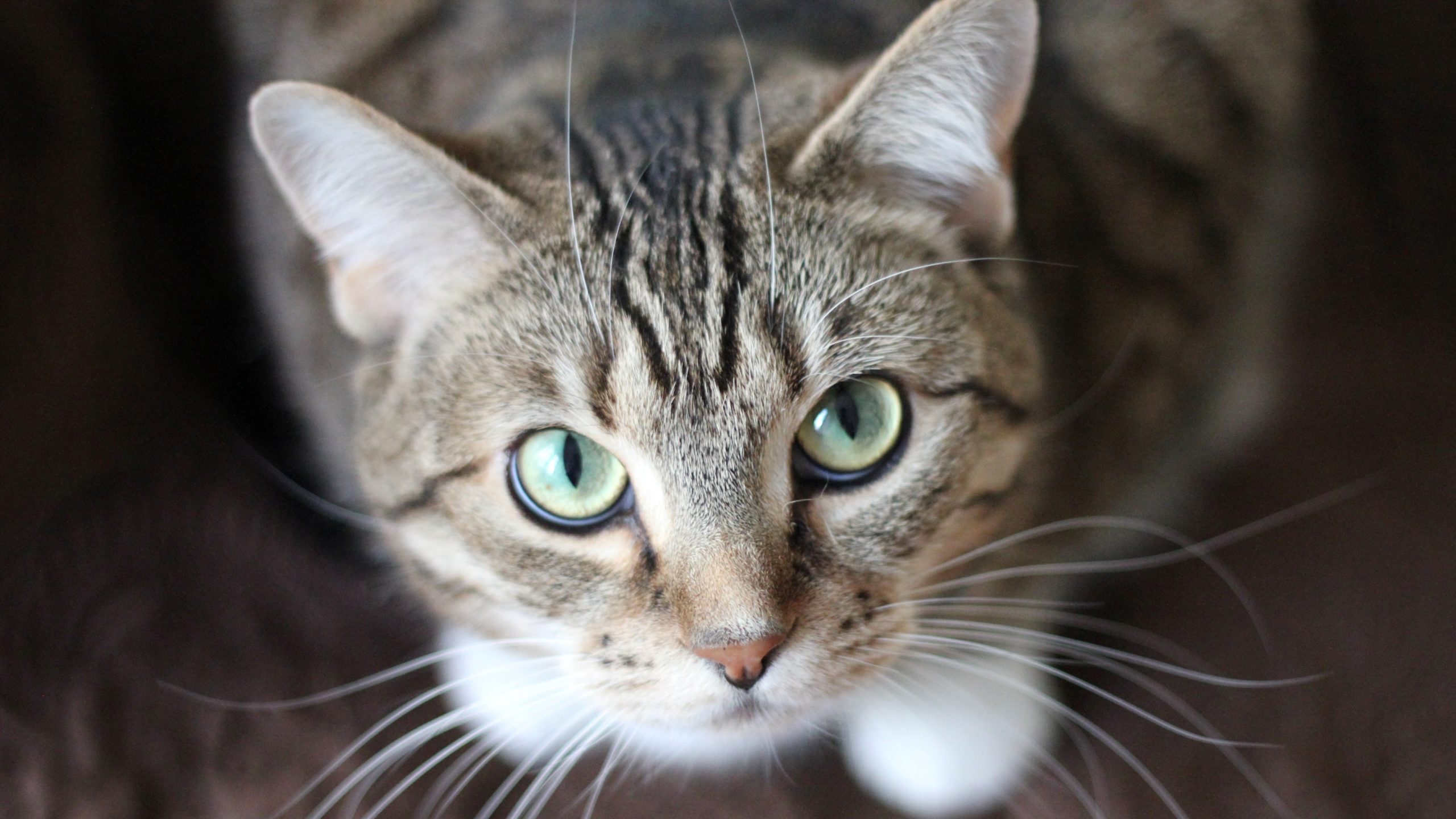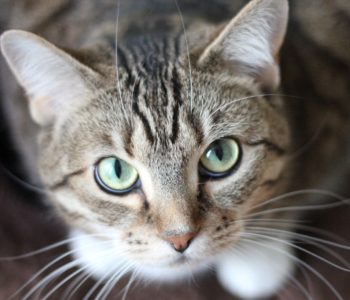Are you a cat person or a dog person?
English idioms seem to have a love affair with these household pets. We already have an amusing list of dog idioms so now let’s shine the spotlight on cat idioms.
Whether you need to describe a person’s character or the way they sleep, these fun idioms with cat connections have you covered. If you’re not a cat or a dog person, don’t worry. There are plenty of other animal idioms you can enjoy.

Cat idioms to describe people
Let’s begin our list of cat idioms with some which you can use to describe a person’s behavior, appearance or personality.
Fat cat
A fat cat is a term for a wealthy or powerful person but in a derogatory way. It would normally be used when talking about people in business or politics.
“The fat cats in London are making bad decisions for us all!”
You can find some more idioms about money and wealth here.
A scolded cat
When you move fast, perhaps if you have been frightened or are in trouble, you could describe it as moving like a scolded cat.
“They had a big argument in the restaurant and then he left like a scolded cat.”
Scaredy-cat
The cat idioms on this list will describe a whole host of characteristics from being quiet or tired to curious or messy! This one means you are afraid of something, or scared. A scaredy-cat is a fearful person.
“We’re all going to ride the Thunder Mountain roller-coaster. Come on, don’t be a scaredy-cat.”
Just be aware that you can’t use the word ‘scaredy’ on its own. Check out some more scary idioms here.
Fight like cats and dogs
As everyone knows, cats and dogs fight! They don’t like each other. People that fight like cats and dogs simply fight or argue a lot, perhaps in a very forceful and angry way.
“Right! You go to your bedroom and you go to your bedroom. I’m sick and tired of you fighting like cats and dogs.”
If you’re feeling mad but not fighting, you could use some angry idioms instead.
Like that cat that got the cream
Idioms with cat-like situations cover a whole host of feelings and emotions. Saying someone is like the cat that got the cream means they are very proud and satisfied about something they have done.
“Well look at her. She’s like the cat that got the cream.”
“You look like the cat that got the cream. Is there something you want to tell me?”
This saying is similar to the phrase ‘The cat that swallowed the canary‘. Although they seem similar, this idiom is talking about someone who looks or acts slightly guilty or smug. They may be proud of something they have done but they are concealing something mischievous!
Like a cat on hot bricks / Like a cat on a hot tin roof
These cat idioms both describe someone who can’t sit still. They might be restless or perhaps feeling nervous. You can just imagine that a cat on hot bricks would need to keep moving around so as not to hurt its paws.
“Just sit still, you’re like a cat on a hot tin roof!”
This also features on our list of hot idioms.
Cat burglar
You may come across this term on the news if they’re informing people about a thief who is getting into buildings. A cat burglar is very quiet and sneaky and will be unnoticed until you realize your things are missing.
“Be sure to lock your windows as the police said there’s a cat burglar in the area.”
Grinning like a Cheshire cat
A rather funny one of these idioms with cat connections is grinning like a Cheshire cat. We say this when someone is very happy with themselves and has a wide, self-satisfied smile on their face.
“He was grinning like a Cheshire cat after winning the spelling bee.”
Perhaps you have heard this phrase before. Although it predates the story, it is featured in Alice’s Adventures in Wonderland written by Lewis Carrol.
This is just one of the many expressions to describe happiness in English.
Look like something the cat dragged in
Cat idioms can also be used to describe how someone looks. If you are told you look like something the cat dragged in this is not a good thing. It means you look untidy, dirty, and unkempt; perhaps even disheveled.
“I don’t care if it’s the latest fashion. You look like something the cat dragged in.”
Cat got your tongue?
Could you imagine if this really happened? Fortunately it doesn’t actually refer to you losing any body parts. It just means that you’re quiet and not responding, or that you were quite talkative and have now gone silent.
“Oh, so now you’re quiet. A moment ago you were the class clown. Has the cat got your tongue?”
The full saying is ‘Has the cat got your tongue?‘ but you will often hear it shortened to just ‘cat got your tongue?‘

More idioms with cats
A game of cat and mouse
When a cat catches a mouse, it often plays with it or teases it before becoming violent with it. There can also be an element of pursuit.
So, a game of cat and mouse describes a situation or relationship where one person is chasing or pursuing another, especially when the advantage seems to keep switching from one side to the other.
It could also apply in a contest, fight, or power struggle when one side is playing games or toying with the other side, trying to trick them to gain an advantage.
“It’s time you two were honest with each other. It’s like a game of cat and mouse sometimes.”
“I’m so tired of playing this game of cat and mouse with my coworker. We should be working together, not in competition.”
Cat nap
Some idioms with cat themes really make sense. If you own a cat then you’ll know how often they like to sleep for just a little while. That is what a cap nap is – a short sleep.
“Before we go out tonight I’m just going to have a quick cat nap.”
You could just say the word ‘nap’, since ‘cat nap’ and ‘nap’ mean much the same thing. But ‘cat nap’ is cuter and funnier, wouldn’t you agree?
Check out some more idioms to talk about sleeping.
Curiosity killed the cat
Sometimes being too nosy or inquisitive about something may get you into trouble. Someone might warn you that curiosity killed the cat in order to get you to stop.
“Excuse me, why are you looking in this cupboard? You know curiosity killed the cat.”
You may also hear shorter versions of this saying if people assume you already know it. For example, they could say “Well you know what curiosity did” or “Don’t be so nosy; you know what happened to the cat!”.
Let the cat out of the bag
When you can’t keep a secret or you carelessly reveal some information, you are said to have let the cat out of the bag.
“I don’t think he meant to let the cat out of the bag so soon, but now the whole team knows.”
“This is going to be a surprise party for Jemima, so don’t let the cat out of the bag.”
Bag expressions are diverse in nature, but this is the only one about cats on our list.
Like herding cats
Next time you wish to dramatize a difficult or impossible task, you could say it is like herding cats. After all, cats are not known for their cooperation with humans.
“I had all the grandchildren at my house this weekend. Trying to get them ready to go to the park was like herding cats!”
“I know everyone means well, but trying to coordinate this team of volunteers is like herding cats.”
No room to swing a cat
This is a great idiom to picture. Why would you swing a cat around to test the size of a room! When people say there is no room to swing a cat they mean that the room or space is very small; almost too small to be fit for purpose.
“I don’t believe the estate agent for one moment. That “double bedroom” didn’t have enough room to swing a cat!”
Once again, the origin of this phrase is very interesting.
Not a cat in hell’s chance
If the probability of something happening is absolutely zero, you would emphasize your point by using the popular cat idiom not a cat in hell’s chance.
“There is not a cat in hell’s chance I’m letting you borrow my car after last time!”
Another phrase meaning the same thing is ‘not a snowball’s chance in hell’. You can imagine, a snowball would have no chance of lasting long in hell because it would melt.
Put a/the cat among the pigeons
Try to picture the trouble caused if you did put a cat among pigeons. And this is what is meant by this cat idiom; to do or say something that is likely to cause mayhem, trouble, or controversy.
“Why did you have to say that in the meeting? It’s really put the cat among the pigeons.”
“I’m not afraid to speak my mind, even if it does put a cat among the pigeons.”
This idiom is primarily heard in British English, sometimes with the variation ‘amongst’.
Raining cats and dogs
This is a very popular idiom to describe rain. Raining cats and dogs simply means a lot of heavy rain.
“Are you still going for a walk? It’s raining cats and dogs out there.”
Just as there are plenty of other weather conditions, there are plenty of weather idioms too.
The cat’s whiskers
This slightly old-fashioned expression is used to show that something is very appealing to you. When you describe something (or someone) as the cat’s whiskers, it means you think it (or they) are the very best.
“Your new car really is the cat’s whiskers.”
Bizarrely, you could also say that something is the cat’s pyjamas (or pajamas) to mean the same thing!
There’s more than one way to skin a cat
This cat idiom may not sound nice but it’s quite positive. When you tell someone there’s more than one way to skin a cat, you’re really motivating them to believe there is more than one way to achieve their goals.
“So, you can’t get the funds to attend the university you want but remember there’s more than one way to skin a cat. I’m sure we’ll figure something out.”
When the cat’s away the mice will play
The full expression, when the cat’s away the mice will play, may be shortened to ‘When the cat’s away’ and probably followed with a wink.
It’s a way of suggesting that if someone in authority isn’t present, people will misbehave. For example, when a teacher leaves the classroom the students will misbehave.
“Mum and dad are away this weekend so let’s have a house party. When the cat’s away the mice will play, after all!”
Who’s ‘she’? The cat’s mother?
Here’s another slightly dated, British saying. When telling a child off for using the word ‘she’ instead of referring to someone by name, you would say: Who’s ‘she’? The cat’s mother?
This is because it’s considered more polite for children to refer to their elders by their correct name or title. When you correct them in this way you’re pretending you don’t know who ‘she’ is as they haven’t said their name.
“Pardon! Who’s ‘she’? the cat’s mother? Her name is Mrs Jones.”
There are plenty of other typically British idioms for you to enjoy.
What a purrrr-fect list of cat idioms!
If you come across any other cat-related English phrases, feel free to add them in the comments below or leave a question if you hear one that you aren’t too sure of. And if cats or dogs aren’t your thing, take a look at some fish idioms and bird idioms instead.


